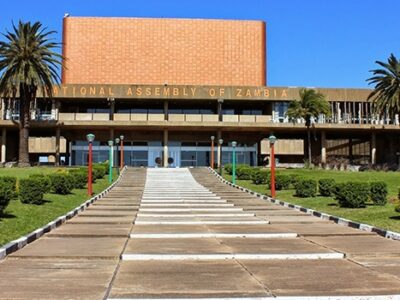Policies that promote the participation of women and girls in fields of science and technology should be strengthened to achieve a just and equitable society that responds to global problems.
These fields include increased access to Science, Technology, Engineering and Mathematics (STEM) education as well as increased access to digital skills in line with global trends.
As Zambia celebrated women on Wednesday this week, the Policy Monitoring and Research Centre (PMRC) underscored the need to strengthen gender-responsive digital transformation strategies across all Government policies and programmes.
Sydney Mwamba, Acting PMRC Executive Director said this would enable Zambia to achieve a just and equitable society that responded to global problems and offer greater opportunities for women and girls in the fields of science and technology.
Mwamba said this in the PMRC message to celebrate women.
Read more: Invest in science, technology for sustained economic growth —African govts told at Niamey forum
“In addition, there is need to step up efforts in fostering innovations among women and girls, particularly rural women, to develop solutions to challenges facing them in an effort to transform society into one that offers equal opportunities for all through financial and digital inclusion and the promotion of women and girls in STEM,” he said.
Beyond the world of work, Mr Mwamba said, technology and innovation through digital spaces had transformed how women accessed critical health information and services.
He said through various innovations, digital applications had been developed to tackle issues ranging from delivering vital health information to pregnant women, improving access to sexual and reproductive health services, to reporting instances of sexual and gender-based violence (SGBV).
“Technological advancements have been pivotal in diminishing socio-economic barriers and enhancing women and girls’ participation and decision-making abilities in the overall development agenda.
“The digital space also has the potential to enhance the capacity of women to take up challenging roles and increase their contribution to national development,” Mwamba said.
He however observed that access to technology and digital spaces still remained a challenge for many women and girls in Zambia.
According to Mwamba, studies show that only about 5.8 percent of females in Zambia are computer literate, while the digital divide between the rural and urban areas remains at 47 percent, with rural areas still experiencing low digital literacy.
WARNING! All rights reserved. This material, and other digital content on this website, may not be reproduced, published, broadcast, rewritten or redistributed in whole or in part without prior express permission from ZAMBIA MONITOR.












Comments